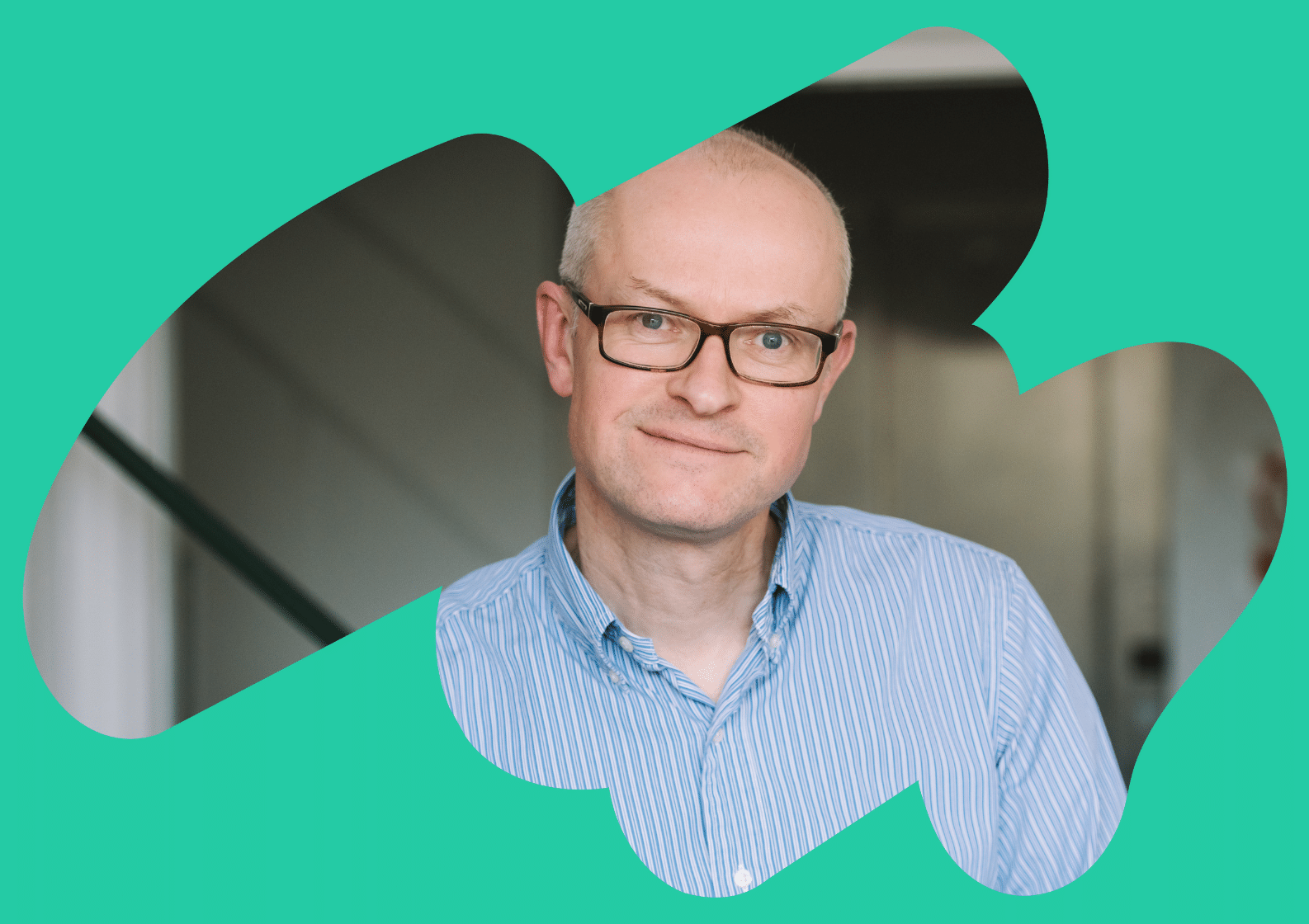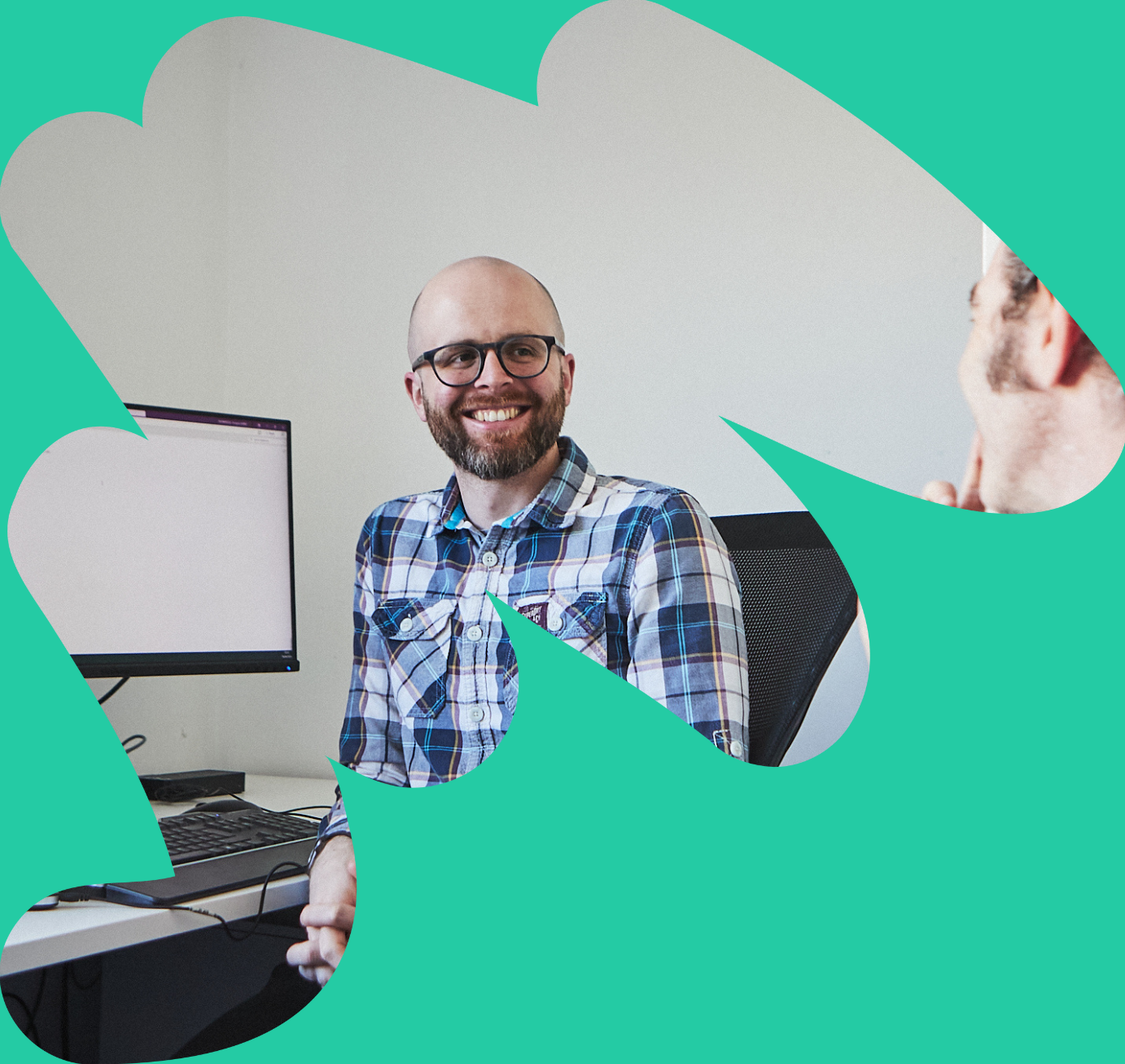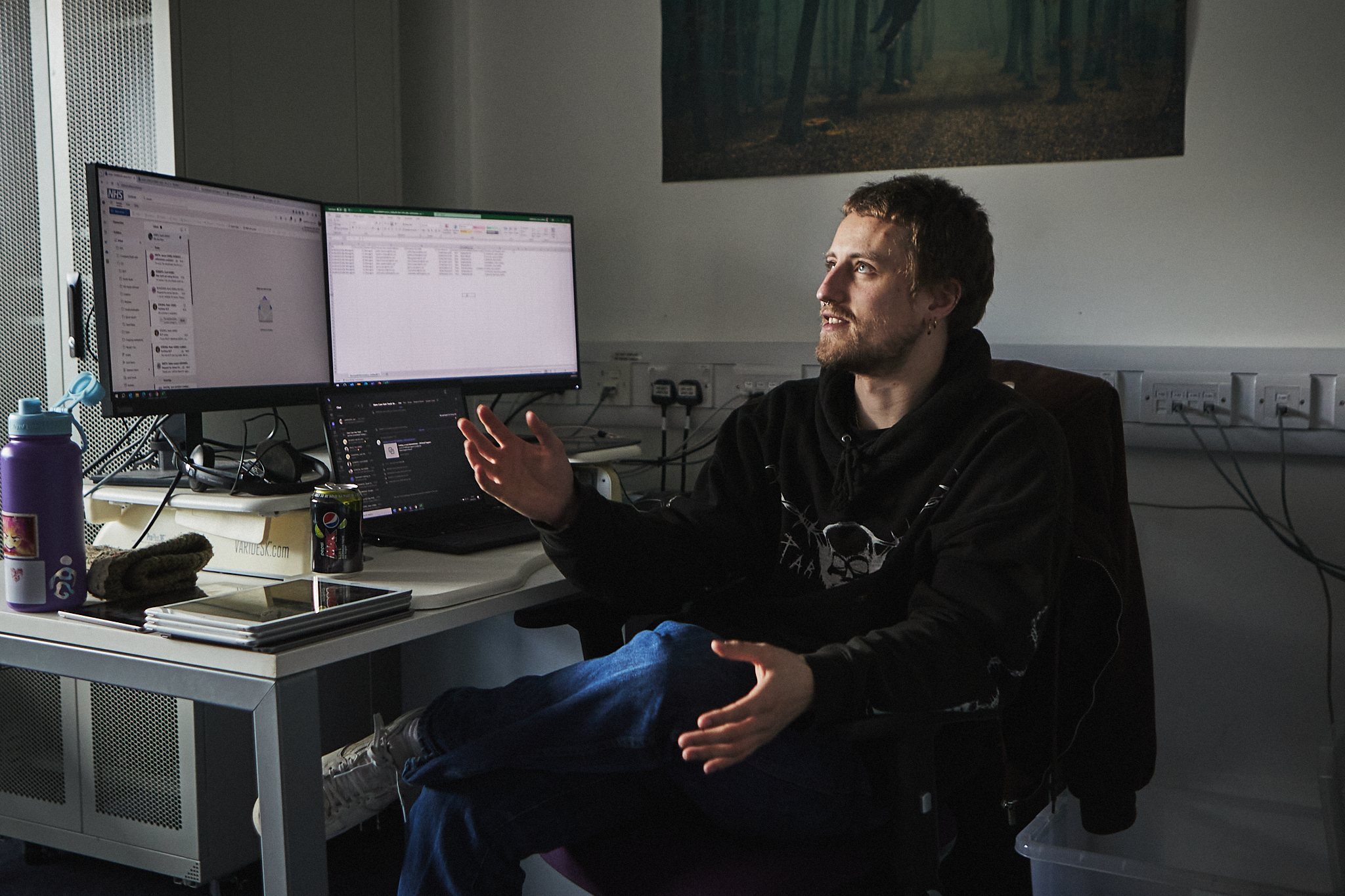Like many of us delivering healthcare in collaboration with the NHS, hospices are experiencing the dilemma of not being an NHS organisation but needing to know our way around the landscape of data as if they are.
The post Data and Analytics: why we work with hospices appeared first on Here.
]]>Data and Analytics: why we work with hospices

Exceptional care, for everyone
At Here we talk about our purpose being ‘Exceptional care, for everyone’. As well as providing outstanding clinical services, we deliver on that purpose through partnering with other organisations to deliver the ‘outstanding’.
This has always been part of our ethos. Most of the work that we do is in partnership with others, and it’s a way of working that feels engrained in what we do.
Connecting with hospices
The connection with hospices grew out of various enquiries that we had received about working with TPP SystmOne data. Many hospices had transitioned to the SystmOne Electronic Patients Records (EPR) in the last 5 years, and there seemed to be a common question – “we have lots of great data, but how do we use it?”
That resonated with us: SystmOne is a very ‘grown up’ clinical system – it is highly customisable, and the volume and sophistication of the data is captures is impressive, so much so that getting the best out of the data can be complicated.
That was our story as well – we have been using SystmOne successfully for around 12 years, and we realised very quickly that we needed to make investments in our analytics skills and infrastructure to make it work in the way that we wanted.

What are the analytics needs of hospices?
The message comes through loud and clear: hospices don’t want someone to do data analysis for them—they want to do it with them.
This distinction matters enormously. Hospices are working within tight resource constraints, but they’re hungry to build their own capabilities. The journey they’re facing is familiar to many healthcare organisations: moving from spreadsheets to Power BI, and scaling to data warehouses. It’s not just about the technology though—it’s about upskilling teams and building confidence in working with data.
Accelerating digital strategy
We’ve learnt that what hospices are really seeking is an accelerator, not an outsourced solution. They want to learn from someone who’s navigated this path before, avoiding the pitfalls and focusing on what actually works in a healthcare setting. There’s a recognition that sustainable change comes from building internal capability, not dependency on external consultants.
Right now, digital and data strategy isn’t just nice to have—it’s absolutely critical. Hospices are increasingly viewing data as a strategic asset, not merely an administrative burden. With healthcare systems under unprecedented pressure, hospices need to demonstrate their value and impact through evidence.
This is about more than efficiency or reporting. It’s about enhancing the visibility of hospice care within the broader health system. When hospices can clearly articulate their outcomes, resource needs, and the gaps they’re filling, they strengthen their position as essential partners in end-of-life care.
The challenge ahead is clear: building data capability within resource constraints, but the appetite for change has never been stronger.
The challenge ahead is clear: building data capability within resource constraints, but the appetite for change has never been stronger.
What did we learn?
The pressure is mounting. NHS standards and mandatory data returns are creating new demands on hospices that can’t be ignored. While every hospice we’ve worked with shares fundamentally similar needs, they’re each at different points in their data journey.
A cookie-cutter approach simply doesn’t work. Each hospice has configured their systems differently, grown organically with different tools, and faces unique local constraints. What is transferrable isn’t a plug-and-play solution—it’s the underlying knowledge. Understanding how to connect disparate systems behind the scenes, how to make data flow smoothly between platforms, and how to overcome the messy, real-world challenges that data inevitably throws up.
We’re seeing some promising collaboration emerging at regional level, though it’s still in early stages. Hospices are beginning to recognise the value in sharing approaches and learning from each other’s experiences.
The priorities are becoming clear across the sector. Hospices are focusing on population health management, improving access and equity for their communities, understanding IPOS (Integrated Palliative care Outcome Scale) effectively, and developing robust impact measurement. These aren’t just buzzwords—they’re the foundations for demonstrating value and securing the future of hospice care.
Get in touch for an informal chat about how we can help you transform your analytics:
Analytics@HereWeAre.org.uk
Also of interest
Data and Analytics: why we work with hospices
Like many of us delivering healthcare in collaboration with the NHS, hospices are experiencing the dilemma of not being an NHS organisation but needing to know our way around the landscape of data as if they are.
Data rich, information poor: Why analytics matters to hospices
Like many of us delivering healthcare in collaboration with the NHS, hospices are experiencing the dilemma of not being an NHS organisation but needing to know our way around the landscape of data as if they are.
The post Data and Analytics: why we work with hospices appeared first on Here.
]]>The post Data rich, information poor: Why analytics matters to hospices appeared first on Here.
]]>Data rich, information poor: Why analytics matters to hospices

Changing landscape
Like many of us delivering healthcare in collaboration with the NHS, hospices are experiencing the dilemma of not being an NHS organisation but needing to know our way around the landscape of data & analytics as if they are.
Faster Data Flows
For example, programmes such as ‘Faster Data Flows’ designed to provide and share timely data across care providers, Integrated Care Boards (ICB’s) and NHS England to ‘improve the flow and speed of data to support local, system and national decision making’. Quite rightly, hospices are being asked to participate, and it is important that they do, because that’s what it means to be part of the NHS data landscape, and the NHS pays for what it can see.
But this places a burden on hospices to either take on more manual processes and administrative burden, or do the necessary system configuration and data engineering in order to connect in this way. A typical hospice may have one or two analysts, but is unlikely to have the data engineering expertise to hand

Analysis Paralysis
The good news is that most hospices have now migrated to modern Electronic Patient Record (EPR) systems. These systems are typically the same as those used within NHS primary and community care, so data is likely to be collected in the same way. In fact, when configured correctly, these systems have potential to hold vast amounts of information concerning every aspect of patient care.
The tricky part is that it isn’t that easy to get the data out and use it. Using tools like Excel (or even Power BI) is quite rate limiting unless the data has been properly structured outside the EPR. Put simply, the analyst resource available will be used up just trying to maintain relatively small numbers of reports – checking anomalies, trying to cope with changes to the data that break everything – when it should be purely focused on what adds most value – measuring impact, helping people to do their jobs.
Well, the other good news is that it isn’t that hard to break out of Analysis Paralysis.
Opportunity
So what is the solution? What does exceptional analytics look like? Is it affordable when hospice finances are stretched to, and in some cases beyond, breaking point?
Having invested resources to migrate to modern EPR solutions, analytics is really the icing on the cake and much more achievable than it might appear. The things that get us there are:
- Using a data warehouse to load and ‘transform’ the EPR data in a way that makes it easier for analysts to use and provides a ‘single version of the truth’ – fix the data in one place, rather than in every report and spreadsheet that it gets used in
- Link in external datasets such as population demographics to better understand how they meet the needs of their community
- Make the data securely available throughout the organisation through a business intelligence platform like Power BI, Qlik Sense, or Tableau to provide information to anyone that has a need – managers, clinicians, directors – with bespoke dashboards and reports that can flex and evolve through time. If the analysts are spending 80% of their time developing new reports rather than on churning out the data, you know you have got it right!
Support in transforming analytics
Over the last year we have been working with two hospices that are breaking out of the analysis paralysis – St Gemma’s in Leeds and St Barnabas in Lincolnshire. It is noticeable that both are dealing with very similar challenges, with similar data, and similar ambition. They both understand their own data inside out, so the ask has been to support them on their journey rather than do it for them. And they know exactly what they want: How do we automate our reporting? How do we improve data quality? What does health equity look like? How do we measure our impact?
With the right foundation in place, hospices can transform their analytics from a necessary burden into a powerful tool that truly serves their mission—improving patient care, demonstrating impact, and securing the future of hospice services in an increasingly data-driven healthcare landscape.
Get in touch for an informal chat about how we can help you transform your analytics:
Analytics@HereWeAre.org.uk
Also of interest
New RCGP Report Highlights Hidden GP Workload
Like many of us delivering healthcare in collaboration with the NHS, hospices are experiencing the dilemma of not being an NHS organisation but needing to know our way around the landscape of data as if they are.
Data and Analytics: why we work with hospices
Like many of us delivering healthcare in collaboration with the NHS, hospices are experiencing the dilemma of not being an NHS organisation but needing to know our way around the landscape of data as if they are.
Data rich, information poor: Why analytics matters to hospices
Like many of us delivering healthcare in collaboration with the NHS, hospices are experiencing the dilemma of not being an NHS organisation but needing to know our way around the landscape of data as if they are.
The post Data rich, information poor: Why analytics matters to hospices appeared first on Here.
]]>The post How can Here help hospices enhance their impact with data? appeared first on Here.
]]>How can Here help hospices enhance their impact with data?

Unlocking the power of data: How Here can help hospices enhance their impact
At Here, we’ve been supporting healthcare organisations for over 16 years, using data and analytics to drive meaningful improvements in care.
Our experience in working with NHS organisations and Primary Care Networks has given us a unique insight into the challenges faced by hospices when it comes to data management and reporting.
We believe that hospices can greatly benefit from harnessing the power of data—and we’re here to help.
Why data matters for hospices
In recent years, many hospices have made great strides in adopting advanced electronic patient record (EPR) systems like SystmOne. These systems offer a wealth of valuable information, but extracting meaningful insights from that data can be complex. Whether it’s about demonstrating the value of your services, ensuring equitable access for your community, or making sure you’re using resources as efficiently as possible, data holds the answers. But are you getting the most out of it?
Hospices are increasingly faced with the need to provide robust evidence of their impact—not just in terms of patient care, but also in how they integrate into the wider healthcare system.
How are you measuring the outcomes that matter most to your patients? How can you prove your value? How can data help you enhance the quality of care while ensuring financial sustainability?
These are big questions—and they’re exactly the kinds of challenges we’ve been solving for years.

Our approach: A partnership, not an outsourcing relationship
We understand that hospices vary greatly in their data and analytics capabilities. Some have well-established teams, while others are stretched thin, relying on manual processes or outdated methods of reporting. That’s where we come in—not to replace your team, but to complement and enhance your existing skills.
Our goal isn’t to outsource your data function; it’s to build a partnership where we work alongside you, helping your hospice maximise its impact through effective data use. We aim to empower your team to focus on what really matters: understanding your service outcomes and making informed decisions about where improvements can be made.
Whether you need help with setting up automated reports, developing dashboards, or making better use of tools like Power BI, we can step in at the right moment, providing the technical expertise that allows your team to focus on delivering outstanding care.

The benefits of getting your data right
Here’s how we typically work:
- Building a data warehouse: We pull together data from your EPR system and other sources into a single, reliable data warehouse. This makes reporting faster, more accurate, and far less prone to errors compared to manual spreadsheets.
- Data transformation and automation: We build robust data structures that allow for rapid reporting and analysis. You’ll have a “single version of the truth,” meaning no more conflicting numbers across different reports. You’ll be able to access timely, accurate data without the burden of manual number-crunching.
- Enabling your team: By creating strong data foundations, your in-house team can focus on using their knowledge and expertise to interpret the data, rather than wasting time piecing it together. With the right infrastructure in place, they can easily generate reports that are meaningful and actionable.
- Outcome-focused analytics: We help you measure the impact your hospice is making in the community. Are you reaching the populations that need you most? Are your services financially sustainable? What’s the quality of care being provided, and where could it be improved? These are the types of questions we help you answer using clear, data-driven insights.
Understanding the needs of hospices
Five key areas we’ve identified where data can make a real difference:
- Population reach: Are you serving your community equitably? Data can help you understand which demographics are accessing your services and where there might be gaps in care.
- Service activity and quality: Data allows you to track not just what services are being provided, but how effective they are. What are the outcomes? Are there areas for improvement?
- Workforce management: From understanding the mix of skills in your team to ensuring that you’re making the best use of those skills, data can provide crucial insights into how your workforce is performing.
- Financial effectiveness: Ensuring that you’re using funds as efficiently as possible is vital, especially in a time of increasing financial pressure on hospices. Data can help you make informed decisions that balance care quality with cost-efficiency.
- Outcomes and impact: How are you contributing to the broader healthcare landscape? Hospices play a crucial role in delivering personalised, compassionate care, but proving that value to commissioners and other stakeholders can be challenging. Data can help you demonstrate your impact clearly and convincingly.
Working flexibly, for the long term
Our approach is flexible. We understand that needs can change over time, so we work with you to evolve the partnership as your capabilities grow. Initially, we might focus on building the right infrastructure, then later shift to enhancing analytics and reporting capabilities.
Partnerships evolve over time as needs change, we don’t expect to be there forever. Our aim is to help you reach a point where you can manage your data effectively, and we’re happy to evolve or even for us to step back once you’re confident in your capabilities.
Let’s work together
At Here, we believe that data can unlock new possibilities for hospices, helping you to deliver even better care to the people who need it most.
For over a decade we’ve been refining our approach to data and analytics, and we’re passionate about sharing that knowledge with others.
By building a solid data infrastructure and enabling your team to focus on what they do best, we can help you move from simply collecting data to truly understanding and leveraging it.
If you’d like to explore how we can help your hospice, we’d love to have a conversation.
To get in touch email: matthew.riley@nhs.net
Read more about our work with hospices:
Our partnership with St Gemma’s Hospice announcement blog.
Chief Executive, Dr Helen Curr has written about ‘Why we want to work hospices’
Matthew Riley, Chief Information Officer at Here
My team manages and develops the information systems that we use across our services. My role is to inspire the use of information to connect the organisation to its purpose.

Also of interest
New RCGP Report Highlights Hidden GP Workload
Like many of us delivering healthcare in collaboration with the NHS, hospices are experiencing the dilemma of not being an NHS organisation but needing to know our way around the landscape of data as if they are.
Data and Analytics: why we work with hospices
Like many of us delivering healthcare in collaboration with the NHS, hospices are experiencing the dilemma of not being an NHS organisation but needing to know our way around the landscape of data as if they are.
Data rich, information poor: Why analytics matters to hospices
Like many of us delivering healthcare in collaboration with the NHS, hospices are experiencing the dilemma of not being an NHS organisation but needing to know our way around the landscape of data as if they are.
The post How can Here help hospices enhance their impact with data? appeared first on Here.
]]>

